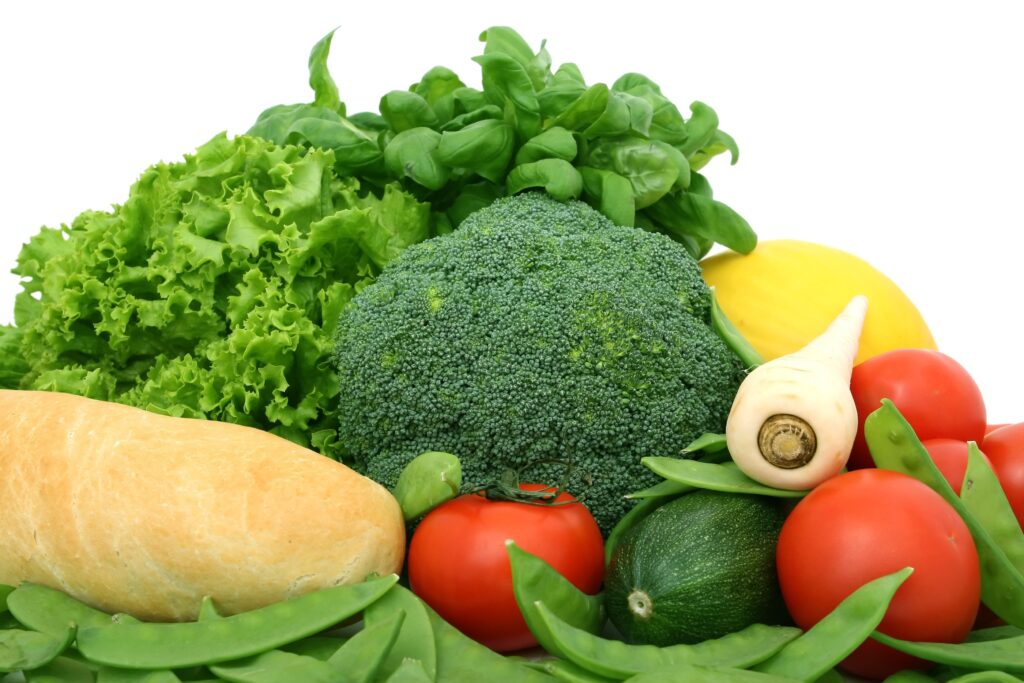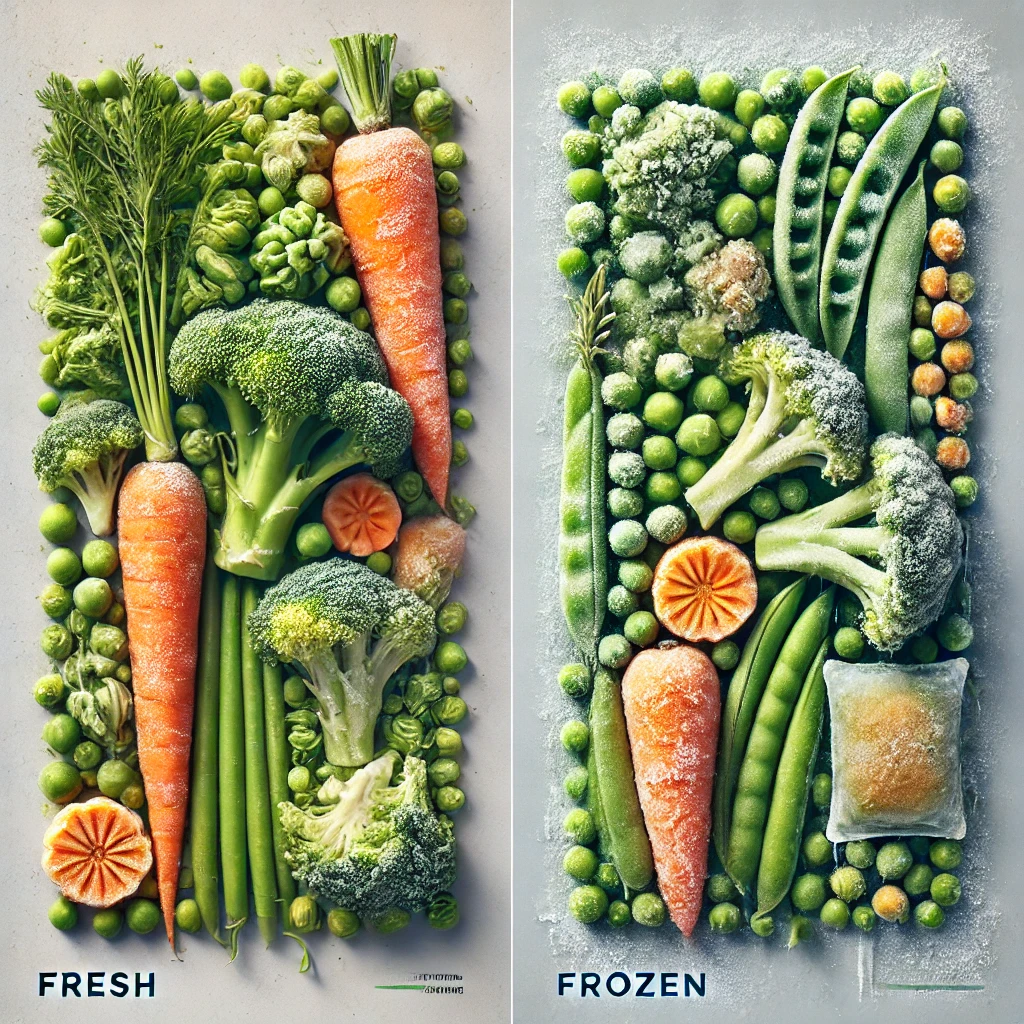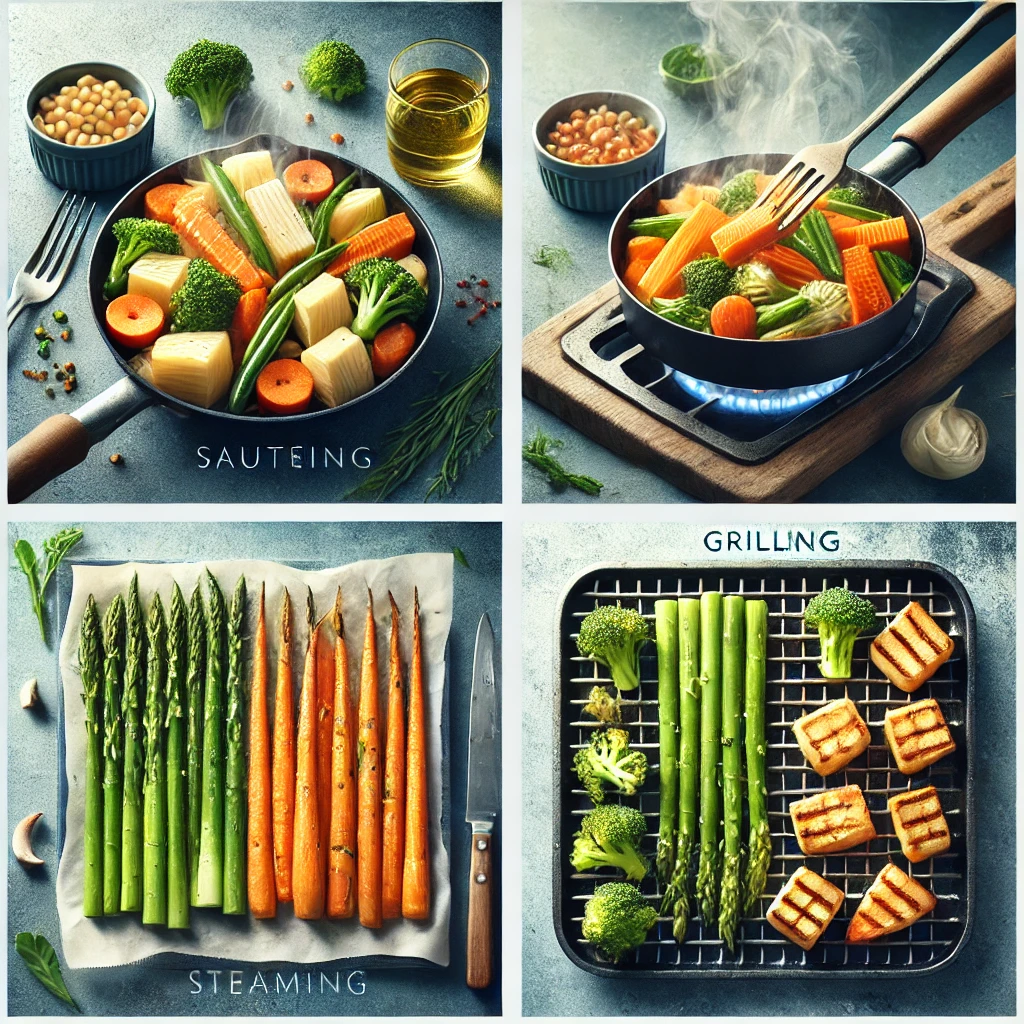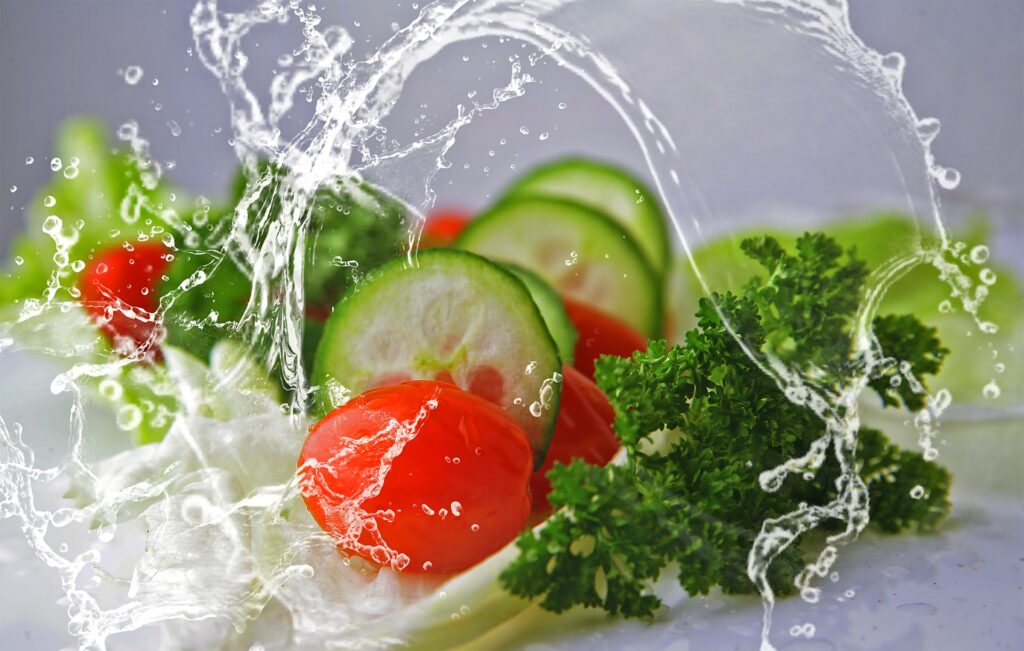Frozen vegetables have long been a convenient solution for those looking to easily add more vegetables to their meals, especially for busy individuals who may not have time to shop. They’re affordable, available year-round, and can last for months in your freezer. However, one common question persists: Are frozen vegetables as healthy as fresh ones? And once you’ve stocked up your freezer, how do you cook them to ensure they taste great?
In this article, we’ll explore the health benefits of frozen vegetables, compare them to fresh produce, and dive into the best methods for cooking them—whether you’re using a microwave, roasting them in the oven, or crisping them up in an air fryer.

Table of Contents
ToggleAre Frozen Vegetables as Healthy as Fresh?
The idea that frozen vegetables might be inferior to fresh vegetables is a common misconception. Many people believe that freezing food diminishes its nutritional value, but this isn’t necessarily the case. In fact, frozen vegetables are often just as healthy as fresh—sometimes even more so.
The Freezing Process Locks in Nutrients
Frozen vegetables are typically picked at their peak ripeness, when they are most nutrient-dense. After being harvested, they are blanched (quickly boiled) and flash-frozen within a few hours. This process helps to preserve their vitamins and minerals by locking in their nutrients. Flash-freezing essentially “pauses” the aging process, preventing the vegetables from losing nutritional value over time, which can happen with fresh produce as it sits on store shelves or in your fridge.
In contrast, fresh vegetables can begin to lose nutrients after harvest, especially if they’ve been transported long distances or have spent several days in a grocery store. By the time you get them home, they may have already lost a significant amount of vitamins like vitamin C and B-vitamins.
Comparing Nutrients: Frozen vs. Fresh
Numerous studies have compared the nutritional content of frozen and fresh vegetables. In many cases, frozen vegetables retain similar levels of nutrients as fresh ones. In fact, some studies show that frozen vegetables can contain even higher levels of certain nutrients, particularly when the fresh produce has been stored for a long time before consumption.
For example, frozen spinach and broccoli often retain higher amounts of Vitamin C than their fresh counterparts because freezing prevents the breakdown of this nutrient. Fiber, minerals, and most antioxidants are also well-preserved in frozen vegetables.

How to Cook Frozen Vegetables: General Tips
While frozen vegetables are nutritionally sound, the way you cook them can make a big difference in their texture, flavor, and overall appeal. If cooked improperly, they can end up mushy, watery, or bland. However, when cooked the right way, frozen vegetables can be just as delicious as fresh ones.
Here are some general tips for cooking frozen vegetables:
- Don’t Thaw Before Cooking: Unless a recipe specifically calls for thawing, it’s best to cook frozen vegetables directly from frozen. Thawing them first can lead to a soggy texture.
- Season Generously: Frozen vegetables benefit from bold seasoning. Salt, pepper, garlic powder, smoked paprika, and fresh herbs can help enhance their flavor.
- Avoid Overcooking: Frozen vegetables cook faster than fresh ones, so keep an eye on them to avoid overcooking, which can result in a mushy texture.

Quick & Easy: 4 Ways to Cook Frozen Veggies
Cooking frozen vegetables is quick and convenient, allowing you to prepare nutritious meals with minimal effort. Whether you prefer sautéing, steaming, or roasting, there are several methods to ensure your frozen veggies taste just as delicious as fresh ones.
Sautéing Frozen Veggies
Different frozen vegetables have different cooking times, so it’s helpful to check the instructions on the package. Most frozen vegetables can be cooked in a pan for about 5 to 7 minutes. There’s no need to thaw them—just heat oil in a skillet and add your frozen vegetables. To enhance the flavor, consider sprinkling in some herbs and spices during cooking.
Steaming Frozen Veggies
Since frozen vegetables are partially cooked before freezing, steaming them is a great option. This method is quick and efficient, with most frozen veggies taking between 2 and 10 minutes to steam. Just watch the time, as over-steaming can lead to a mushy texture.
Roasting Frozen Veggies
You can roast frozen vegetables easily! They usually cook a little faster than fresh ones. Most frozen vegetables will be perfectly roasted in about 20 to 25 minutes, and it’s a good idea to turn them halfway through to ensure they cook evenly. This is also a perfect moment to add herbs and spices for extra flavor.
Grilling Frozen Veggies
If you’re feeling adventurous, grilling frozen vegetables is an option too! Since they can be more delicate than fresh vegetables, it’s best to use a grill basket to prevent them from falling through the grill grates. Cooking times will vary, but you can generally expect them to take about 5 to 10 minutes on the grill, flipping them halfway for even cooking.

FAQ: Are Frozen Vegetables as Good as Fresh?
Do frozen vegetables lose their nutrients during freezing?
No, the quick freezing process actually helps preserve most of the nutrients. Frozen vegetables are often picked at peak ripeness and flash-frozen, locking in their vitamins and minerals. While some nutrients (like Vitamin C) might decrease slightly, the overall nutritional difference between frozen and fresh vegetables is minimal.
How can I make frozen vegetables taste better?
The key to making frozen vegetables taste better is in the cooking method and seasoning. Roasting or air frying frozen vegetables adds a crispy texture and caramelizes their natural sugars, enhancing their flavor. Don’t be afraid to season generously—salt, pepper, garlic, and olive oil work wonders.
Should you defrost frozen vegetables before cooking them?
Typically, there’s no need to defrost frozen vegetables before cooking. In fact, cooking them straight from frozen can improve their texture, especially when using methods like roasting or air frying. Thawing can make them soggy, so it’s best to cook them directly from the freezer.
Conclusion
For those who are busy, frozen veggies are a cheap, convenient, and nutrient-dense choice. You can turn frozen vegetables into a delicious and nutritious complement to any dinner by cooking them in a variety of ways, including the microwave, air fryer, and roasting method. Frozen vegetables are an adaptable and year-round product that can help reduce food waste and save time.
The nutritional richness and flavor of fresh produce may be enjoyed without having to worry about waste or spoiling, so keep that in mind the next time you’re wondering about the health advantages of frozen veggies or the best ways to prepare them.
Want to learn more about the amazing health benefits of okra water? Check out our in-depth guide here



Pingback: Somatic Yoga: A Holistic Approach to Fitness, Weight Loss, and Mind-Body Wellness - totalwellbeingblog.com
Pingback: The Benefits of Okra Water: Is It More Than a Trend? - Total Wellbeing Blog.com
Very interesting information!Perfect just what I was looking for!